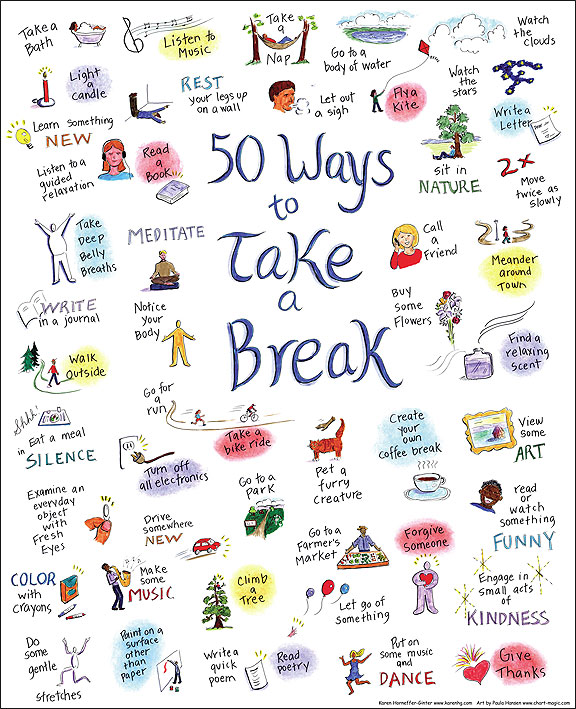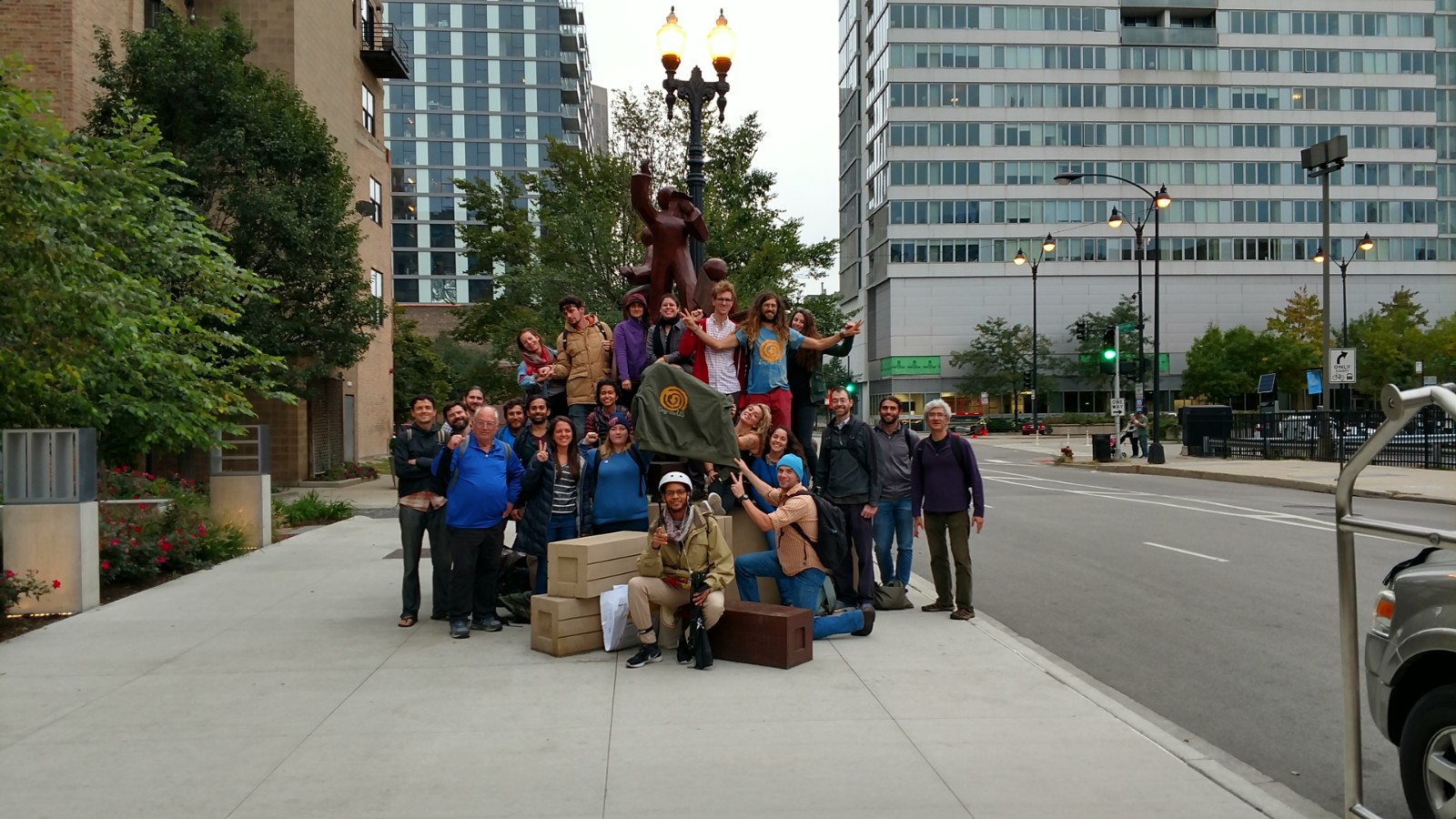Australia’s two-speed economy, in which those engaged in mineral extraction flourish while the rest flounder, seems to have only one direction: up. Not that people really stop to think why. Most Australians, if you asked them, would stare blankly if you mentioned degrowth, or crack a joke about how it’s tantamount to devolution. It seems the citizens of this sunburnt country are, as of yet, unmoved by the degrowth movement.
But a peek beneath the surface of our consumer culture reveals a wealth of of academics, writers, activists and community leaders advocating degrowth, and whose offerings to the movement include progressive opinion leadership, think tanks, grassroots groups, a political party, and even an independent magazine.
The movement is in its infancy, however, and like a toddler taking its first steps, it needs support, guidance and coordination, and forming alliances will prove vital. The message of degrowth needs to resonate above the cacophony of consumer culture and seize its place in the public and political discourse if it is to reach beyond the choir of the already converted.
Degrowth theory is gaining traction among Australian academics, with a number of progressives questioning the growth paradigm and proposing transitional pathways to a sustainable economic system. Prominent intellectuals including Ted Trainer and The Simplicity Institute’s Samuel Alexander have collaborated over the Simpler Way Project, a practice-based resource for living more lightly upon our planet.
Packaging de-growth theory into a digestible form for a population whose passion for material consumerism is rampant is not an easy task. `Organizations such as The Center for Advancement of the Steady State Economy (CASSE) have yet to find an effective messaging strategy for their advocacy for fundamental economic reform. The Post-Growth Institute has enjoyed greater success by offering novel ways for the public to engage in degrowth, with fun events such as Free Money Day.
On the political front, Sustainable Population Australia (SPA), and the Sustainable Population Party (SPP) have taken on the unenviable challenge of advocating for population stabilization policies to align our collective footprint with carrying capacity. At this point SPP is the only Australian political party that explicitly states the pitfalls of the economic growth trajectory.
At the grass-roots level, the Transition Towns Movement has had patchy success in Australia. Some groups thrive, with well-attended workshops, skillshares, speaker events, produce swaps, and regular get-togethers, while others dwindle. Doing It Ourselves, a Transition-based initiative, offers a more systemic perspective – as presented in their introductory video – articulating the need for community resilience in our era of peaking resources and economic collapse. With their clever and relatable communication strategy alongside practical community-based action this up-and-coming organization is one to watch.
David Holmgren, Founding Father of Permaculture and outspoken critic of our growth-obsessed culture, has aroused controversy with his 2013 essay, Crash on Demand. Holmgren suggests that our civilization is on a dangerous trajectory of resource depletion that will lead to eventual collapse, leaving a ravaged Earth much less capable of supporting human life, and argues for a deliberately precipitated economic crash that will stall the behemoth of destruction, averting ecological collapse.
Degrowth in Australia enjoys a paltry media presence at best, and access is largely denied to those whose message goes against the grain. Culture-jamming its way past the mainstream media, SHIFT magazine is anew independent tplatform for the voices of the movement to streamline and amplify their message.
Personal and community actions of the kind advocated by Transition Towns and Doing It Ourselves are the driving force of change. However, in our consumer-oriented society the choice to adopt a simpler lifestyle consistent with degrowth is not easy, as the very structure of our society locks us into high-consumption pathways. Political engagement is required in order to remove barriers to degrowth, and strength will come with numbers.
For any movement to succeed, a meta-strategy with unified and coherent public messaging is paramount. Still in its infancy the de-growth movement in Australia lacks a unified voice, and there is very little collaboration between the spheres of academia, advocacy, and the grass roots. There is also little in the way of communication with elements of the broader movement for sustainability – including, most importantly, the environment movement, which is just beginning to question the role of the economic growth imperative in the destruction of our ecosystems.
As a fledgling movement the next step for degrowth in Australia is to connect, coordinate, and collaborate. Sharing platforms and resources while cross-pollinating the borderlands between sectors provides opportunities to walk the degrowth talk while facilitating the emergence of a unified movement.
For the degrowth movement to really take hold in Australia there is going to need to be a concerted and collaborative effort at reaching beyond the choir. If we are to degrow purposefully, and not just as a response to crisis, concepts have to depart the ivory towers of academia and make their way to Joe Public on his couch facing the TV. A messaging strategy that resonates with the average Australian is vital if we are to reach, and not just preach.
Joe Public, whose kids’ future is riding on a vanishing dream of infinite growth too good to be true, is going to need a better dream. With pro-growth skepticism beginning to set in, now is the time for degrowth to settle into the cracks in the system and pioneer the path less travelled.
> Comment on this article on the German blog "Postwachstum"
On June 6th we will once more celebrate the Global Degrowth Day (GDD). On this day, like last year, we want to show that there are alternatives to the capitalist growth society and that a good life for all is possible! This time of multiple crisis can be overwhelming, but it is also a crucial moment to re-think how we live and how societies are organized. Degrowth is a powerful tool to e...

“When you told your friends and family you were going to a degrowth gathering, they asked, ‘What is degrowth?’ How did you respond?” The 2018 degrowUS gathering from September 28-30 2018 in Chicago began with this question. The first day’s thirty-odd attendees wrote their responses on sticky notes as they scraped the last bites of lunch off the dishes the event’s organizers had told them to ...

By Christiane Kliemann When listening to all the keynotes, panels and sessions, or simply joining the lively discussions between conference participants, there is the notion of an overall agreement that a broader new vision for society and the economy is most urgently needed. However, the elephant in the room is that such vision is almost impossible to shape, if it is to represent the diversi...